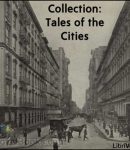
Collection: Tales of the Cities
This is a collection of city stories, fiction or non-fiction, in English and published before 1923. Contributions have been chosen by the reader himself. [chương_files]
5 bài viết found

This is a collection of city stories, fiction or non-fiction, in English and published before 1923. Contributions have been chosen by the reader himself. [chương_files]
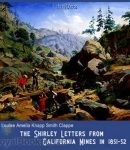
Louise Amelia Knapp Smith Clappe moved to California from Massachusetts during the Gold Rush of the mid-1800’s. During her travels, Louise was offered the opportunity to write for The Herald about her travel adventures. It was at this point that Louise chose the name “Shirley” as her pen name. Dame Shirley wrote a series of 23 letters to her sister Mary Jane (also known as Molly) in Massachusetts in 1851 and 1852. The “Shirley Letters”, as the collected whole later became known, gave true accounts of life in two gold mining camps on the Feather River in the 1850s. She described these camps in Northern California with vividness in portraying the wildness of Gold Rush life. The letters give detailed accounts of the vast and beautiful landscape that was the background to the hustle and bustle of mining life. Louise’s perspective as a woman provided a contrast to the typically all-male mining camps that she occupied. The letters were later published in the Pioneer, a California literary magazine based out of San Francisco. [chương_files]
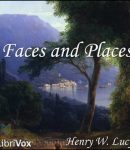
Faces and Places is a collection of articles on nineteenth century travel, events and personalities by the British journalist Henry Lucy, who wrote for the Daily News, a London newspaper. His open letter To Those About to Become Journalists rings as true today as when it was written. The first article, “Fred” Burnaby, includes a lively account of a balloon trip, while Night and Day on the Cars in Canada and Easter on Les Avants relate Lucy’s experiences of rail travel at that time. Other travel tales (A Night on a Mountain, Mosquitoes and Monaco, and Oysters and Arcachon) provide an insight into the Victorian Englishman’s attitude to Europe. Three of the pieces, With Peggotty and Ham, A Cinque Port and Christmas Eve at Watts’s, concern the county of Kent, where Lucy had a country house. Christmas Eve at Watts’s contains an interesting exposé of Dickens’ short story The Seven Poor Travellers. Other articles are of historical interest: A Wreck in the North Sea is an account of the wreck of the ship “Deutschland” in 1875; A Historic Crowd describes the massive popular interest in the 1871 trial of the Tichborne Claimant; The Battle of Merthyr contains an eye-witness account of the Merthyr Riots of 1831; The Prince of Wales paints a portrait of the future King Edward VII. Lucy, who also wrote as “Toby, M.P.” for the satirical magazine Punch, loved to poke gentle fun, particularly at the establishment, and this is especially evident in A Peep at an […]
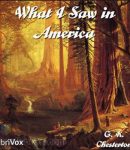
“Let me begin my American impressions with two impressions I had before I went to America. One was an incident and the other an idea; and when taken together they illustrate the attitude I mean. The first principle is that nobody should be ashamed of thinking a thing funny because it is foreign; the second is that he should be ashamed of thinking it wrong because it is funny.” (Gilbert Keith Chesterton) [chương_files]
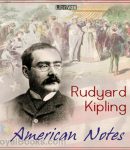
In American Notes, Rudyard Kipling, the Nobel Prize-winning author of the Jungle Book, visits the USA. As the travel-diary of an Anglo-Indian Imperialist visiting the USA, these American Notes offer an interesting view of America in the 1880s. Kipling affects a wide-eyed innocence, and expresses astonishment at features of American life that differ from his own, not least the freedom (and attraction) of American women. However, he scorns the political machines that made a mockery of American democracy, and while exhibiting the racist attitudes that made him controversial in the 20th century concludes “It is not good to be a negro in the land of the free and the home of the brave.” G. A. England of Harvard University (letter to The New York Times 10/11/1902) wrote: “To the American temperament, the gentleman who throws stones while himself living in a glass house cannot fail to be amusing; the more so if, as in Mr Kipling’s case, he appears to be in a state of maiden innocence regarding the structure of his own domicile.” Summary by Tim Bulkeley with Quotations from the Gutenberg edition of American Notes and the online version of The New York Times of October 11th 1902. [chương_files]
Copyright © 2024 | FreeAudible